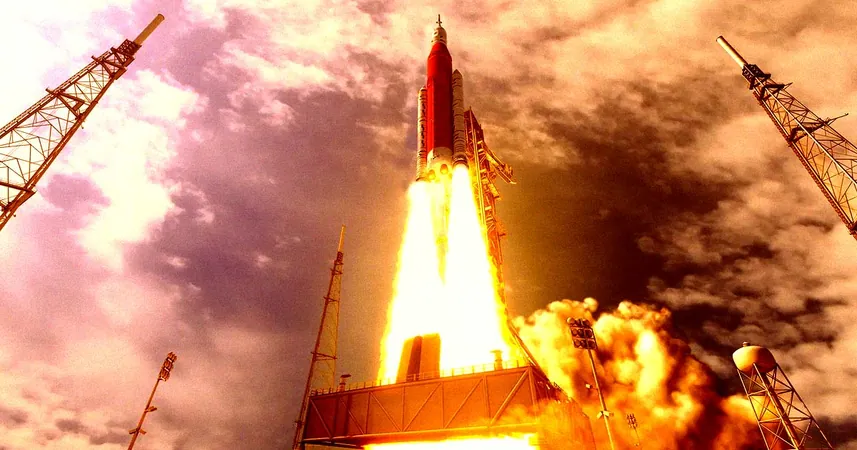
Is NASA's Ambitious Moon Rocket Facing the Axe? Here's What You Need to Know!
2024-11-13
Author: Wai
NASA’s long-awaited Space Launch System (SLS) rocket, designed to herald a new era of lunar exploration and deliver astronauts to the Moon for the first time in over 50 years, may be on the verge of cancellation. That's right—the future of this multi-billion dollar project hangs in the balance and insiders are sounding alarm bells!
According to Eric Berger, a senior space reporter from Ars Technica, sources claim there’s a “50-50” chance the SLS program could be scrapped altogether. While some variants like Block 1B and Block 2 were initially given priority, it seems that all iterations of the rocket could be shelved if NASA chooses to pivot.
Despite the urgency of lunar exploration, NASA finds itself mired in budget overruns, delays, and ever-growing complexities that many view as unsustainable. Former NASA administrator Lori Garver characterized the project as “not sustainable” in a 2022 interview, while her predecessor, Michael Griffin, has voiced serious concerns about the program's feasibility. He pointed out that Artemis is fraught with high costs and risks, ultimately questioning its timely completion.
As of now, the SLS has been launched only once during the uncrewed Artemis I mission in 2022. However, subsequent damage to the Orion spacecraft has raised red flags about future crewed missions to the Moon. An alarming report from NASA’s Office of Inspector General reveals that just the launch tower for Artemis IV—tentatively planned for 2028—has already swelled to an astonishing $1.8 billion.
Adding to the turmoil, Boeing, a key player in the SLS development, has been struggling with its commitments. A report cited various issues that could jeopardize the Block 1B's readiness for Artemis IV, citing deficiencies in quality management and unexpected rising costs.
What does this mean for the future of lunar missions? If NASA walks away from the SLS, creative alternatives may enter the spotlight. Berger suggests that NASA could consider using other rockets like SpaceX's Falcon Heavy and United Launch Alliance's Centaur V to accomplish its goals. But whether any alternative plans are in a serious discussion phase is uncertain.
With leadership changes anticipated, the decision-makers who will ultimately influence the fate of the SLS have yet to settle into their roles. Change is in the air, but the questions remain: Can NASA pivot in time? Will innovation save the day, or is this the end of the SLS saga?
Stay tuned for updates on what could be a historic shift in NASA's lunar ambitions, as the world holds its breath!



 Brasil (PT)
Brasil (PT)
 Canada (EN)
Canada (EN)
 Chile (ES)
Chile (ES)
 España (ES)
España (ES)
 France (FR)
France (FR)
 Hong Kong (EN)
Hong Kong (EN)
 Italia (IT)
Italia (IT)
 日本 (JA)
日本 (JA)
 Magyarország (HU)
Magyarország (HU)
 Norge (NO)
Norge (NO)
 Polska (PL)
Polska (PL)
 Schweiz (DE)
Schweiz (DE)
 Singapore (EN)
Singapore (EN)
 Sverige (SV)
Sverige (SV)
 Suomi (FI)
Suomi (FI)
 Türkiye (TR)
Türkiye (TR)